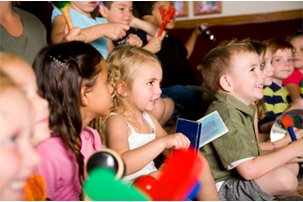Online Safety
Welcome to our school online safety section. This is here to help you and your child stay safe online when using desktop, tablet and mobile devices. The section will be updated regularly so please make sure you check back to see our new content.
Online safety is an important aspect of keeping our pupils safe at Guestling. We have procedures in place to safeguard our children from potential dangers and unsuitable material. Online safety is a fundamental part of our Computing lessons in all year groups.
As part of our partnership with parents, we encourage parents to speak to their children about how they can keep safe and behave appropriately online. It is essential to be realistic; banning the Internet or technology will not work, and often makes a child less likely to report a problem. This means that education around safe use is essential.
Click here to access the latest NSPCC help and advice.
Support for Pupils
Internet Matters has produced a series of ‘Digital Safety at a Glance’ guides for parents of children of five to seven, eight to ten and eleven to thirteen year olds.
The guides include issues for parents to be aware of and practical tips for keeping children safe. The guides can be found here:
Childline for free and confidential advice.
UK Safer Internet Centre to report and remove harmful online content.
CEOP for advice on making a report about online abuse.
Report Remove helps young people under 18 in the UK to confidentially report sexual images and videos of themselves and remove them from the internet.
Take It Down is one step young people can take to help remove online nude, partially nude, or sexually explicit photos and videos taken before they were 18.
Resources for children to use
Below are some links that children themselves can access for help when navigating the tricky subject of online safety,
Reception – Year 2
Below are a number of links that are tailored for children in the younger year groups.
https://www.thinkuknow.co.uk/5_7/
https://www.netsmartzkids.org/
https://www.childnet.com/resources/smartie-the-penguin
Year 3 – Year 6
Below are links more suitable for older children.
https://www.thinkuknow.co.uk/8_10/
https://www.nsteens.org/
Support for Parents
The following links can offer parents support and guidance:
#Ask the awkward – Child Exploitation and Online Protection Centre guidance to parents to talk to their children about online relationships.
Childnet offers a toolkit to support parents and carers of children of any age to start discussions about their online life, to set boundaries around online behaviour and technology use, and to find out where to get more help and support.
Commonsensemedia provide independent reviews, age ratings, & other information about all types of media for children and their parents.
Government advice about protecting children from specific online harms such as child sexual abuse, sexting, and cyberbullying.
Internet Matters provide age-specific online safety checklists, guides on how to set parental controls on a range of devices, and a host of practical tips to help children get the most out of their digital world.
Let’s Talk About It provides advice for parents and carers to keep children safe from online radicalisation.
London Grid for Learning provides support for parents and carers to keep their children safe online, including tips to keep primary aged children safe online.
Stopitnow resource from The Lucy Faithfull Foundation can be used by parents and carers who are concerned about someone’s behaviour, including children who may be displaying concerning sexual behaviour (not just about online).
National Crime Agency/CEOP Thinkuknow provides support for parents and carers to keep their children safe online.
Net-aware provides support for parents and carers from the NSPCC and O2, including a guide to social networks, apps and games.
Parentzone provides help for parents and carers on how to keep their children safe online.
Talking to your child about online sexual harrassment: a guide for parents - this is the Children’s Commissioner’s parent guide on talking to your children about online sexual harassment
Thinkuknow http://www.thinkuknow.co.uk
Thinkuknow is an education programme from the National Crime Agency’s CEOP Command. Since 2006, it aims to ensure that everyone has access to this practical information – children, young people, their parents and carers and the professionals who work with them.
UK Safer Internet Centre provide tips, advice, guides and other resources to help keep children safe online.
Please note that this is not an exhaustive list, but some suggestions for parents and carers wishing to know more.


